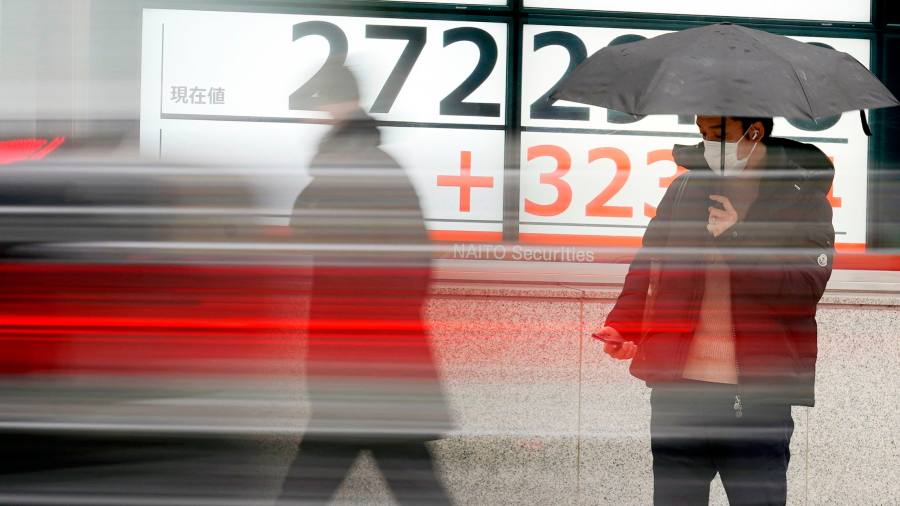Hedge funds wrongfooted by a sharp surge in stocks this week rushed to exit losing bets on falling markets at the fastest pace in years.
Equity markets have risen sharply so far this year, led by many of the speculative stocks that were clobbered hardest during 2022’s global sell-off. Many of the funds that profited from the rout have found themselves poorly positioned for the rebound, which has recently accelerated as investors sensed that interest rates were close to peaking in many major economies.
The resulting flurry of short covering — when investors buy back stocks they had been betting against to limit their losses — was the largest since November 2015, according to a Goldman Sachs note to clients seen by the Financial Times.
The scale of hedge fund buying, which helped fuel a 3.3 per cent jump in the Nasdaq index on Thursday, eclipsed that seen in January 2021, when retail investors co-ordinating their actions on forums such as Reddit sent the price of GameStop and other meme stocks rocketing, inflicting huge losses on some funds.
Funds closed their bets primarily against US stocks but also against European companies.
Bets against stocks that had previously been falling for a long period were “under MAX pressure”, Goldman wrote in a separate note on Thursday seen by the FT.
“We saw [an] explosive move higher” in software stocks “driven by consistent hedge fund covers [short covering] all session,” it added.
The bank estimated on Thursday that quantitative hedge funds lost around 1.3 per cent that day, their worst day in more than six months.
Among stocks that have stung hedge funds this year is online car retailer Carvana, which fell 98 per cent last year but which is up 200 per cent in 2023. Short interest — a measure of the size of bets against the stock — was at 30 per cent as of Thursday, according to S&P Global Market Intelligence, compared with less than 5 per cent a year ago when its shares were far higher.
Short interest in cinema chain AMC Entertainment, whose shares fell 76 per cent last year but have risen 49 per cent this year, is running at 29 per cent, only a slight reduction since the start of the year.
The rally in stocks that were hard hit last year “has likely provided a big technical tailwind for the non-profitable tech universe and has been hurting the [hedge fund] systematic community”, wrote analysts at Goldman.
“It is hard to fight the risk-on momentum,” wrote analysts at Natixis. “The market remains focused and reassured by the near end of the [interest rate] tightening cycle . . . Retail/meme stocks are outperforming strongly.”
On Wednesday the US Federal Reserve raised interest rates by a quarter of a percentage point, a smaller move than its series of large hikes last year, which raised hopes that borrowing costs may soon peak.
However, some of that enthusiasm was tempered on Friday stocks by strong jobs data, which revived fears that the Fed may have to keep rates higher to control inflation.
laurence.fletcher@ft.com
Credit: Source link














